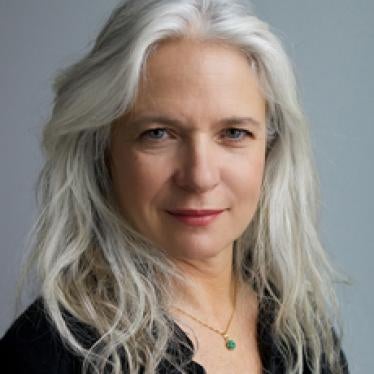(Sarajevo) – Visiting a Roma settlement north of Sarajevo last week was like going back in time to the war — five people crammed into one small room, wood piled in one corner, a stove in another, one worn sofa serving as a bed.
Electricity supplied by a jerryrigged system, a ‘‘window’’ made of plastic sheeting with the U.N. logo and cold water flowing in a communal bathroom. No guns, of course, and no explosions, but a familiar litany of complaints: ‘‘We have no food, no work, no nothing.’’
The war that popularized the term ‘‘ethnic cleansing’’ began 20 years ago when Serb gunmen fired on peaceful protesters in Sarajevo. Within weeks, the city was besieged and television images of Europeans dying shocked the West — though not enough to act until almost four years had passed and tens of thousands had died.
But in 1995, leaders of the warring factions gathered at a U.S. military base in Dayton, Ohio, agreed to a peace deal that ended the fighting — and condemned Bosnia to a future based on the politics of ethnicity.
Much of the city has been rebuilt, though bullet holes and shell markings still scar streets and buildings, and the parks dug up to bury the dead speak to the human cost.
Despite the peace, Bosnia and Herzegovina remains a country deeply divided along ethnic lines, based not only on lingering animosities, but also on separation by ethnicity in political and public life. Under the post-war Constitution, ‘‘constituent’’ people citizens are identified as Bosniaks (known during the war as Bosnian Muslims), Croats, and Serbs. There is no space for Bosnia’s minorities.
I spent two years in Sarajevo covering the war, and I returned last week for the 20th anniversary of the war and to launch a Human Rights Watch report, ‘‘Second Class Citizens,’’ which details discrimination against national minorities, aka ‘‘others.’’ They are thought to represent up to five percent of Bosnia’s 4 million people — mostly Roma, but also Jews, Ukrainians and people from other Southeast and Eastern European countries.
Much of this discrimination stems from Bosnia’s 1995 Constitution, drafted in English by the American peace negotiators, which set up a system of government based on ethnicity and excludes these groups from high political office.
Roma, who are by far the largest national minority in Bosnia and Herzegovina, suffer disproportionately from this ethnic discrimination. The direct discrimination against Roma inherent in Bosnia’s political structure reinforces the indirect discrimination they often face in the provision of services like housing, health care, education and employment.
‘‘During the war it was hard for everyone,’’ said Muljo Fafulic, who runs a Roma organization. ‘‘Everyone was without food or electricity, living in fear, we were all in the same mud. Today that’s not true, but for Roma conditions are still very difficult.’’
Of course it’s not only minorities who still live like refugees — some 8,600 of more than 100,000 still-displaced people remain in shabby, cramped collective centers, assisted by U.N. aid. In a suburb of Sarajevo, Serb-held during the war and now part of the ‘‘Serb Republic’’ entity within Bosnia, we met Sarajevan Serbs who still have not returned to their wartime homes a couple of miles away.
A woman living in one room with her parents and two children would happily live in the Bosniak-Croat entity if she could get an apartment and a job — not so easy with a national unemployment rate of about 40 percent.
‘‘I would have no problem living in a mixed neighborhood — I was born in Sarajevo and before the war we never knew who was who,’’ she said. ‘‘This is Bosnia and Herzegovina, it’s one country.’’
According to the Constitution there are no ‘‘Bosnians.’’ But try telling that to people who come from mixed marriages or don’t want to label themselves as Bosniak, Croat or Serb because they don’t believe in ethnic politics.
Jakob Finci, a Jew, and Dervo Sejdic, a Roma, tried to stand for high office but were disqualified on ethnic grounds and brought a case at the European Court of Human Rights. The court found that the political exclusion of national minorities constitutes unlawful ethnic discrimination. Despite that 2009 ruling, the Bosnian Constitution remains unchanged.
Sarajevo certainly looks like a modern European city: new glass towers, traffic jams and shiny shopping centers mixed with the cobbled streets of the old Ottoman quarter and Austro-Hungarian splendor. There’s even what looks like an Occupy Sarajevo camp, a handful of tents pitched outside the parliament building where the first shots of the war were fired 20 years ago.
It’s a gathering of veterans from all three warring factions, some still in uniform, staging a communal protest to demand the pensions they were promised for their wartime service. A hopeful sign, it’s one of the few places in Bosnia where all sides are working together. But until Bosnia rewrites its constitution to strip it of ethnic labels it’s hard to see how the rest of the country will come together.
Emma Dalyis communications director at Human Rights Watch. She covered the war in Sarajevo for the Independent.







